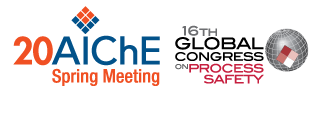

A building block superstructure has been proposed recently to overcome the aforementioned challenge [4]. Unlike the conventional superstructure approach, the building block superstructure does not require a priori postulation of process alternatives. Instead, each building block is used to represent a fundamental constituent of a unit operation, which can then be combined together to represent physicochemical phenomena. These building blocks can be positioned on a two-dimensional grid, and the optimal intensified flowsheet can be automatically generated by solving a mixed-integer nonlinear programming (MINLP) model [5]. However, as these building blocks are represented using a set of algebraic equations describing complex thermodynamic and material and energy transfer, it contains several non-convex equations, which increases the complexity of the final optimization model. Therefore, locating an optimal solution still remains a challenge [6].
In this work, we propose the use of data-driven approach for the design of a building block superstructure. Specifically, instead of relying on a complicated set of algebraic equations describing physical phenomena, we construct accurate and tractable machine learning-based process models to reduce the complexity of the building block superstructure model [7]. In particular, we use an iterative machine learning-based modeling and optimization algorithm, which involves: 1) constructing an efficient design of experiments, 2) constructing machine learning-based process models, and 3) formulating and solving the machine learning-based MINLP problem. A case study on a reactive separation system with non-ideal thermodynamics will be presented, and known process information and constraints will be considered during the design stage to identify a realistic intensified design.
- Stankiewicz, A. and J.A. Moulijn, Process Intensification: Transforming Chemical Engineering. Vol. 96. 2000. 22-33.
- Tian, Y., et al., An overview of process systems engineering approaches for process intensification: State of the art. Chemical Engineering and Processing - Process Intensification, 2018. 133: p. 160-210.
- Demirel, S.E., J. Li, and M.M.F. Hasan, A General Framework for Process Synthesis, Integration, and Intensification. Industrial and Engineering Chemistry Research, 2019. 58(15): p. 5950-5967.
- Li, J., S.E. Demirel, and M.M.F. Hasan, Process synthesis using block superstructure with automated flowsheet generation and optimization. AIChE Journal, 2018. 64(8): p. 3082-3100.
- Demirel, S.E., J. Li, and M.M.F. Hasan, Systematic process intensification using building blocks. Computers & Chemical Engineering, 2017. 105: p. 2-38.
- Boukouvala, F., M.M.F. Hasan, and C.A. Floudas, Global optimization of general constrained grey-box models: new method and its application to constrained PDEs for pressure swing adsorption. Journal of Global Optimization, 2017. 67(1): p. 3-42.
- Kim, S.H. and F. Boukouvala, Machine learning-based surrogate modeling for data-driven optimization: a comparison of subset selection for regression techniques. Optimization Letters, 2019.
Presenter(s)
Language
Pricing
Individuals
| AIChE Member Credits | 0.5 |
| AIChE Pro Members | $19.00 |
| AIChE Graduate Student Members | Free |
| AIChE Undergraduate Student Members | Free |
| RAPID Members | Free |
| AIChE Explorer Members | $29.00 |
| Non-Members | $29.00 |
